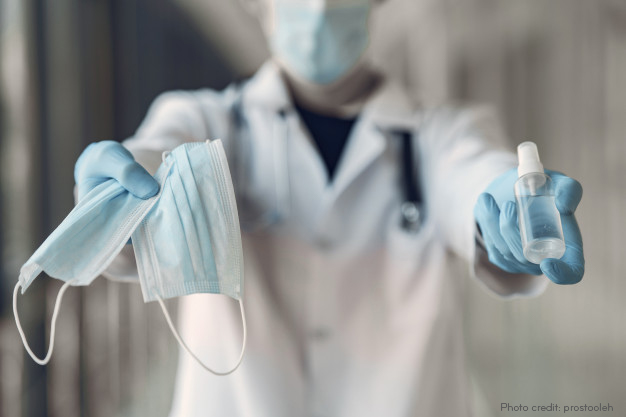During these difficult times, we are being encouraged to spread positivity, and we’d like to talk about the important job that plastic packaging is doing to help key workers in the fight against coronavirus. It is used for medical equipment and to safely protect specialist items, which is incredibly important for infection control at the moment. A correctly recycled plastic item is a fantastic, lifesaving material, helping healthcare teams around the world in the amazing job they are doing.
 In its summary of ‘Why do we need plastic packaging’, one of the key reasons the British Plastics Federation (BPF) highlights is that “plastic keeps products free from contamination. This is particularly useful for medical packaging as they can be filled and sealed hygienically without any human intervention. (e.g. sterile syringes).”
In its summary of ‘Why do we need plastic packaging’, one of the key reasons the British Plastics Federation (BPF) highlights is that “plastic keeps products free from contamination. This is particularly useful for medical packaging as they can be filled and sealed hygienically without any human intervention. (e.g. sterile syringes).”
Other key workers, including the care sector and local authority waste management and recycling teams are reliant on a range of plastic products, including personal protective equipment, clinical and special waste sacks, bin liners and recycling sacks amongst others.
COVID-19 and Plastic
Plastic waste sacks are also playing a significant role in helping to reduce the risk of Covid-19 spreading within households. Public Health England ‘guidance for households with possible coronavirus’ includes advice for cleaning and disposal of waste. It states that personal waste (such as used tissues) and disposable cleaning cloths can be stored securely within disposable rubbish bags. These bags should be placed into another bag, tied securely and kept separate from other waste. This should be put aside for at least 72 hours before being put in the usual external household waste bin. Other household waste can be disposed of as normal.
Having access to vital supplies is important during this time. Plastic packaging also allows fresh food to stay on the shelves for longer and ensures that large amounts of food do not go to waste.
Plastic waste has grabbed the headlines but, in our desire, to do the right thing, the challenge for organisations and individuals is not to eschew plastics in favour of less resource efficient alternatives, but to choose responsibly sourced materials with the lowest carbon footprint. As the BPF indicates “plastic packaging can be recycled many times to create new products, and the rates of recycling and the number of different plastics that are recycled in the UK have been increasing.”
Organisations from across the plastics packaging sector are playing their part in helping to protect people, whether that be providing PPE, manufacturing equipment or offering use of warehouse space at this time. The BPF has called for the plastics industry to be classified as a key part of the national infrastructure and that many of its workers and their skills are critical in the production of much needed products.
In last month’s blog, we highlighted some of the steps we are taking to help combat coronavirus. Our teams are continuing to work exceptionally hard under difficult circumstances to ensure that key workers have the vital products they need. That’s why we’ve started showcasing examples of their work to support others, with the important messages that our teams are #HelpingUKCareCleanContain and #HelpingPeopleHelpingPlanet.